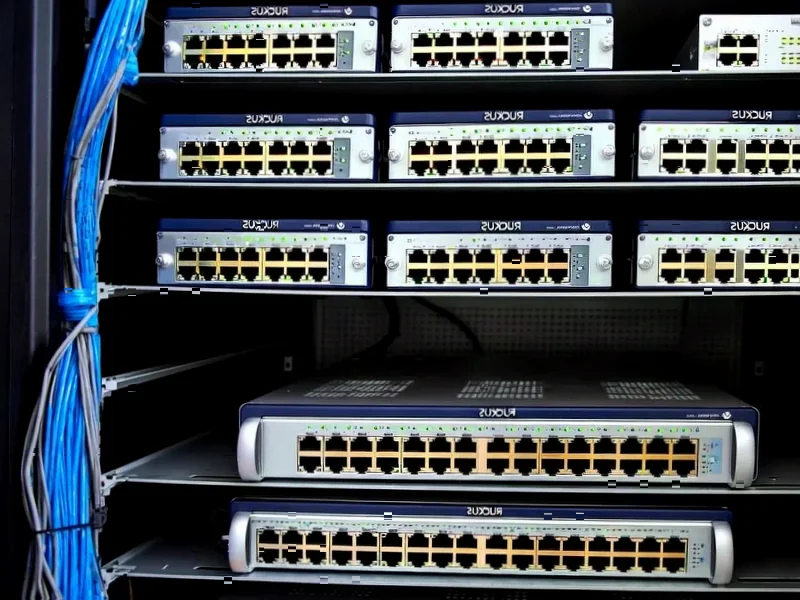According to Fast Company, college students facing AI disruption should focus on two key strategies: leveraging the lack of incumbency advantage in AI and developing transferable skill sets. The publication notes that unlike traditional fields where experienced professionals dominate, no one outside academia has 30 years of AI experience, creating equal opportunity for young professionals to gain expertise. Research cited indicates AI usage benefits less experienced employees most significantly, while the recent tech industry layoffs and slowed hiring demonstrate the risks of over-specialization in fields like coding. The article suggests following examples like Dorie Clark, who successfully pivoted from journalism to political campaigning by applying transferable skills. This perspective offers a counter-narrative to the prevailing anxiety about AI’s impact on entry-level positions.
The Incumbency Advantage That Isn’t
While the concept of incumbency advantage holds true in established fields, applying it to AI represents a fundamental misunderstanding of how technological revolutions unfold. Historically, disruptive technologies don’t simply create new versions of old hierarchies—they fundamentally restructure industries in ways that render existing advantages obsolete. Consider how digital photography demolished Kodak’s film-based dominance or how streaming dismantled Blockbuster’s retail empire. The professionals who thrived during these transitions weren’t those who tried to port their existing advantages into new paradigms, but those who recognized that the rules had fundamentally changed. The real risk for young professionals isn’t competing against AI-experienced veterans—it’s competing against other young professionals who recognized this paradigm shift earlier.
The Transferable Skills Reality Check
The advice to develop transferable skills, while sound in principle, overlooks the brutal efficiency with which AI is automating precisely the types of broad, generalist skills that have traditionally provided career safety nets. Writing, analysis, basic research, and communication—the very skills that enabled career pivots in previous generations—are now directly in AI’s crosshairs. The coding boom and subsequent bust illustrates a deeper pattern: in the AI era, no skill set remains valuable simply because it’s transferable. What matters increasingly is the ability to work symbiotically with AI systems, understanding their limitations while leveraging their strengths. The most valuable “transferable skill” may be meta-cognitive—the ability to continuously identify which human-AI combinations create the most value in rapidly evolving contexts.
The Hidden Risks of Early AI Adoption
There’s a dangerous assumption underlying the “early advantage” argument: that being first to adopt AI necessarily creates sustainable career advantages. In reality, early adoption carries significant risks that could actually handicap young professionals. Those who become proficient with today’s AI tools risk developing workflows and mental models that become obsolete as the technology evolves. More concerning, early AI proficiency might lead professionals to develop dependency on systems that will inevitably change, creating a “first-mover disadvantage” similar to professionals who mastered specific software platforms only to see them replaced by entirely new paradigms. The most successful professionals in previous technological shifts weren’t necessarily the earliest adopters, but those who developed the judgment to know when and how to integrate new tools without sacrificing foundational human capabilities.
Beyond Skills: The Coming Structural Shifts
The most significant challenge for young professionals isn’t skill development but navigating the structural economic changes AI will trigger. As Dorie Clark’s career reinvention example illustrates, successful pivots have historically relied on identifying emerging opportunities in adjacent fields. But AI’s impact is different—it’s simultaneously transforming multiple industries, potentially collapsing traditional career pathways altogether. The real opportunity for young professionals lies not in competing within existing frameworks, but in helping define what work looks like in entirely new domains created by AI. This requires a mindset shift from “how do I prepare for existing jobs?” to “what new forms of value creation will AI enable that don’t exist today?” The answer to that question will separate the professionals who merely survive AI disruption from those who thrive because of it.





Can you be more specific about the content of your article? After reading it, I still have some doubts. Hope you can help me.